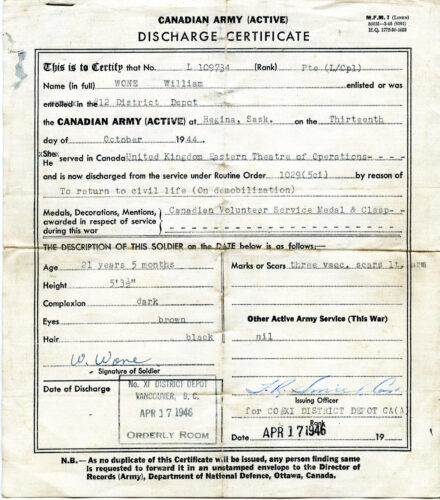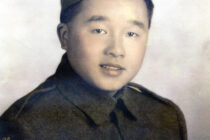
William Wone (whose real name was Der Ying Thin) was born in China and came to Canada as a “paper son.” During the early 1900s the Canadian government passed every tightening immigration acts designed to slow down and even halt Chinese immigration. One way of getting into Canada was to buy papers from a deceased person’s family. As the story goes, when William was a teenager, his family paid $1,000 dollars to buy the papers of a deceased William Wone who was about the same age.
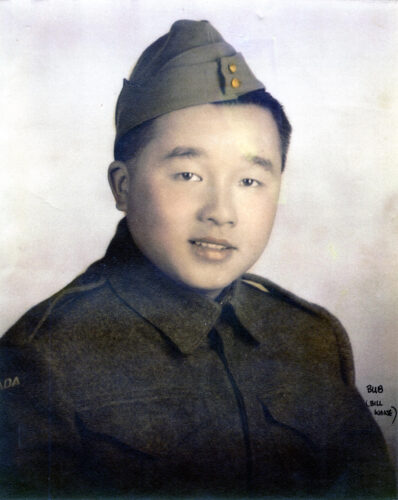
Upon clearing immigration as a paper son, Bub, as he was called, settled in Luseland, near Saskatoon. He lived with some close relatives who had a restaurant business. Although he knew no English when he arrived, he managed to complete Grade 8. At the time, many children left school after they finished the 8th grade and went to work.
Bub loved to play soccer and recalled shoving newspapers into the toes of his too-large soccer boots. His children would later recall that he had well-defined soccer calf muscles right into his 70’s. Bub was also a very good bowler and ping pong player.
Bub proudly served in the Canadian armed forces during WW II and was stationed in India. He was a member of a special unit called Force 136, which was under British command. The young men of Force 136 were trained in jungle survival and commando-type warfare. Their missions involved going into the jungle in Japanese-occupied territories of Southeast Asia, and working with local resistance fighters to conduct espionage and sabotage. Since Bub was Asian and would speak Chinese fluently, the British knew he could easily blend in with local residents.
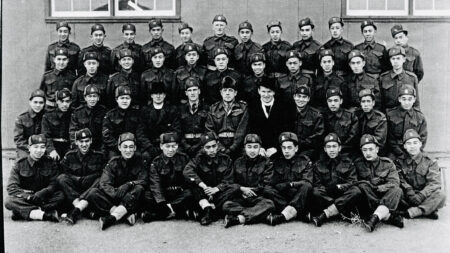
William Wone (aka Billy Der) is in the first row, fifth from the right.
Bub’s picture and name appear in the book by Marjorie Wong called The Dragon and the Maple Leaf. In this book, which focuses on Chinese Canadians in the Second World War, Bub is listed in the index as William Wone, L/Cpl CIC India (his paper son name). However, in a grainy group picture taken in Toronto, in the summer of 1945, his name is recorded as Billy Der (his real birth family name).
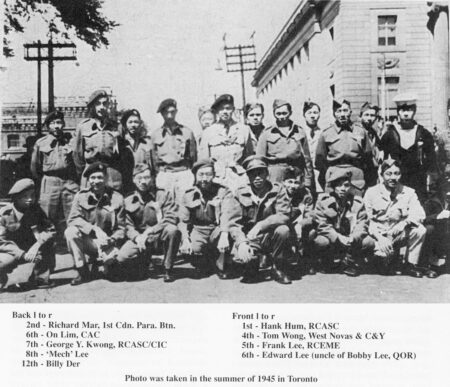
Throughout his life, Bub remained proud of his role in the war and how his service helped to win full citizenship for every Chinese in Canada. Every Remembrance Day he would faithfully put on his uniform and march with other veterans in Vancouver.
In 1962, the former soldier had the opportunity to seek amnesty for coming to Canada under someone else’s papers. He chose not to be among the 12,000 paper sons who sought amnesty.
